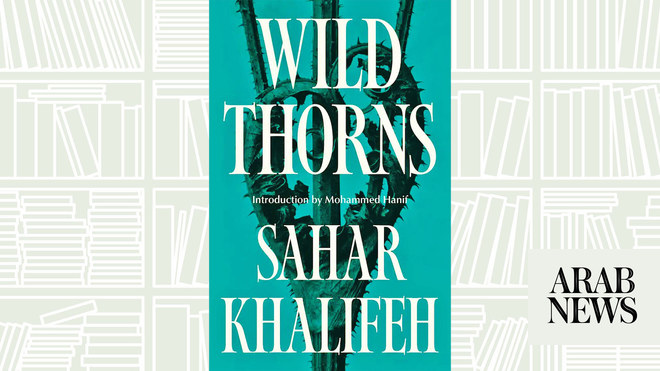
CHICAGO: Originally published in 1976 and re-released nearly fifty years later in 2023, Palestinian author Sahar Khalifeh shines a light on the Israeli occupation of the West Bank in her third novel, “Wild Thorns.” With a new forward written by Pakistani novelist and journalist Mohammed Hanif, the novel chronicles the lives of Khalifeh’s characters Usama, Adil, Nuwar, Zudhi and Abu Shamir, who live under occupation but continue to survive. Translated into English by Trevor LeGassick and Elizabeth Fernea, Khalifeh’s novel humanizes the tragedy of occupation.
Readers first meet 27-year-old Usama Al-Karmi who is returning from the Gulf after being laid off from his job as a translator. Usama has not been back to the West Bank in five years and upon his return is overwhelmed with checkpoints, strip searches, and forced interrogations which only fuel his anger.
Although Nablus is the same as Usama remembers, “occupation is still occupation.” Between Adil, Usama’s cousin who has nine mouths to feed, Abu Sabir whose workplace refuses him an ambulance after he is injured because he does not have a proper Israeli work permit, Nuwar who is in love with a fighter sitting in an Israeli jail, and young Basil who will not allow Palestinians to live under military rule without resistance, are the human lives that survive and stay resilient in the face of occupation. Khalifeh reveals the humanity of a situation where politics are at the fore, but human tragedy is indiscriminate.
In a place where “hungry people cannot afford to be angry,” Khalifeh reveals life under occupation, where soldiers can walk into homes and businesses, take people, livelihoods, and lives in an instant. Political failures are only heightened when nearly 50 years since its publication, the occupation continues. Khalifeh, who is a native of Nablus, survived a forced marriage of thirteen years and went to university in her thirties. Her first manuscript was confiscated by the Israeli army and her third novel, “Wild Thorns,” has been republished multiple times over the past several decades. Her characters continue to occupy spaces in minds and hearts as forces of resistance and of resilience, to be remembered and to continue to be heard as the world witnesses the threat of a second Nakba, 75 years on from the first mass expulsion of 750,000 Palestinians from their homes.








